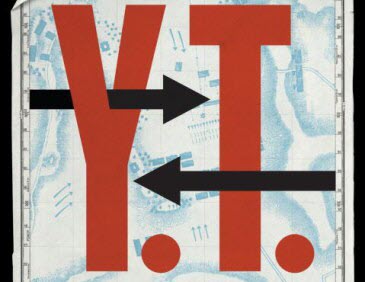“Play is older than culture, for culture, however inadequately defined, always presupposes human society, and animals have not waited for man to teach them playing.” This is how the Dutch historian Johan Huizinga begins Homo Ludens: A Study of the Play Element in Culture. Written in 1938, just prior to the Second World War, the book might have been wholly contretemps if the author hadn’t deftly considered how combat and politics are each shot through with elements of play and gamesmanship. Who are generals and politicians if not, at least in part, overgrown boys wagering the fate of nations? The stakes were outrageous and the rules inhumane, but then, as Huizinga put it, play doesn’t need humans, enlightened humans least of all.
The cruel aspects of play are made apparent in Y.T. a recent novel by the Ukrainian Alexi Nikitin, translated by Anne Marie Jackson and published this April by Melville House. The title is an initialism, shorthand for “your turn” a term used in a strategy game developed by bored students assigned to agricultural duty in the Ukrainian countryside. The action begins in 1984. Associations with George Orwell aside, the date is an unlucky one for the narrator Alexander Davidov and his four companions. The decrepitude of the Soviet system has become all too apparent for those living within it, but the reforms of Perestroika have yet to come. The students have gone to university to study radiophysics, but this is immaterial to their job helping peasants grow apples. As city kids, the students are wholly unsuited to the task. There is nothing to be done except play cards and dine on country cooking. Better entertainment is needed. Using algorithms learned in their university studies, they partition the Soviet Union into a set of fictional entities that vie with each other for military, economic, and political supremacy. READ MORE…

